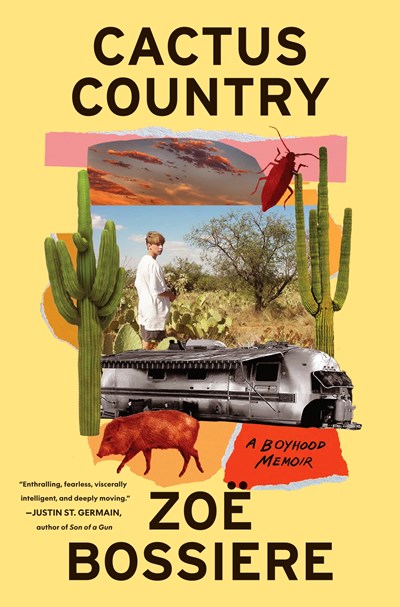A striking literary memoir of genderfluidity, class, masculinity, and the American Southwest that captures the author’s experience coming of age in a Tucson, Arizona, trailer park.

Newly arrived in the Sonoran Desert, eleven-year-old Zoë’s world is one of giant beetles, thundering javelinas, and gnarled paloverde trees. With the family’s move to Cactus Country RV Park, Zoë has been given a fresh start and a new, shorter haircut. Although Zoë doesn’t have the words to express it, he experiences life as a trans boy—and in Cactus Country, others begin to see him as a boy, too. Here, Zoë spends hot days chasing shade and freight trains with an ever-rotating pack of sunburned desert kids, and nights fending off his own questions about the body underneath his baggy clothes.
Equal parts harsh and tender, Cactus Country is an invitation for readers to consider how we find our place in a world that insists on stark binaries, and a precisely rendered journey of self-determination that will resonate with anyone who’s ever had to fight to be themself.
As Zoë enters adolescence, he must reckon with the sexism, racism, substance abuse, and violence endemic to the working class Cactus Country men he’s grown close to, whose hard masculinity seems as embedded in the desert landscape as the cacti sprouting from parched earth. In response, Zoë adopts an androgynous style and new pronouns, but still cannot escape what it means to live in a gendered body, particularly when a fraught first love destabilizes their sense of self. But beauty flowers in this desert, too. Zoë persists in searching for answers that can’t be found in Cactus Country, dreaming of a day they might leave the park behind to embrace whatever awaits beyond.

